8 Reasons You Don't Get Better At Golf
Neil Tappin is joined by Golf Monthly Top 50 Coach Alex Elliott to discuss eight reasons why you don't get better at golf

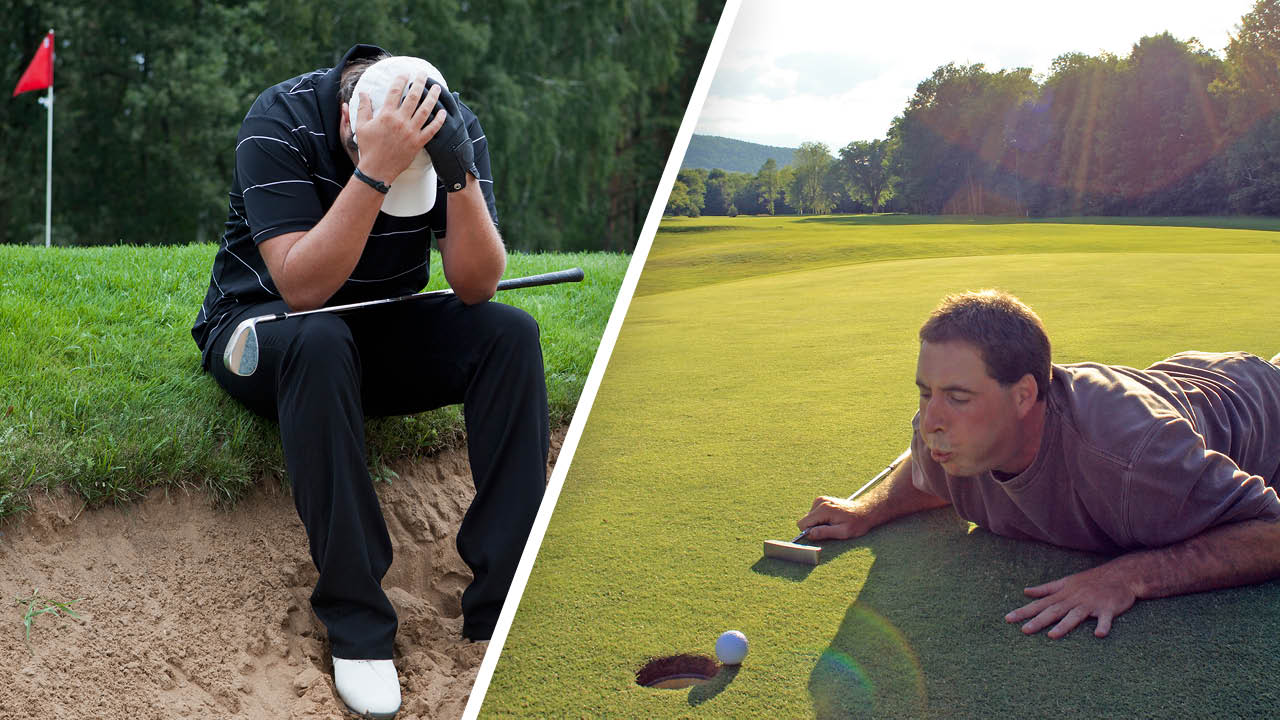
Subscribe to the Golf Monthly newsletter to stay up to date with all the latest tour news, equipment news, reviews, head-to-heads and buyer’s guides from our team of experienced experts.
You are now subscribed
Your newsletter sign-up was successful
Want to add more newsletters?

Delivered daily
Daily Newsletter
Sign up for all the latest tour news, gear reviews, head-to-heads and buyer’s guides plus features, tips from our top 50 coaches and rules advice from our expert team.

Once a week
Kick Point
Sign up to our free Kick Point newsletter, filled with the latest gear reviews and expert advice as well as the best deals we spot each week.

Once a week
Women's Golf Edit
Sign up to our free newsletter, filled with news, features, tips and best buys surrounding the world of women’s golf. If you’re a female golfer, you won’t want to miss out!
Understanding and acknowledging the reasons why you don't get better at golf is key to long-term improvement. We all know that practise is a key factor, but often golfers do this in a way that actually causes more harm than good.
In the video and article below, Neil Tappin and Golf Monthly Top 50 Coach Alex Elliott discuss those points, dispelling myths and offering some simple pointers for how to avoid falling into these traps...
1. Practising on the course
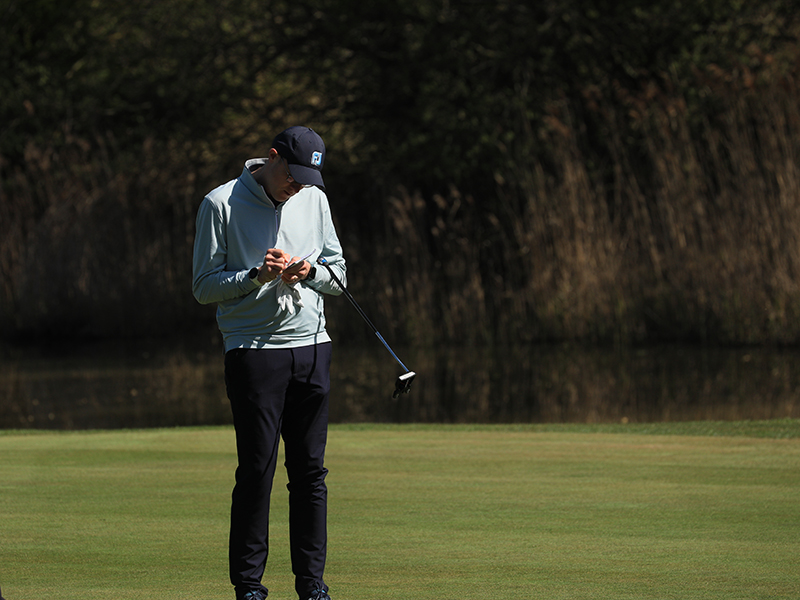
Take notes on the course and track your performance
On the course practice is crucial, but it's something many people get wrong. Lots of golfers think of everything like a competition, however playing with friends or by yourself is a great time to dedicate to improvement and honing your skills.
A tip that Alex gives is to open up the note app on your phone and write down the four shots you want to hit. Then put a tick if you have a realistic chance of hitting the shot, and another tick if you pull that shot off. This will give real-time feedback for what shots work well, and what doesn't.
Why not use this to develop a shot you can rely on under pressure? It's one of the many things tour players do that you don't.
2. Closed practise

Don't just stand at the range and hit the same shot over and over again
When golfers go to the range for a practice session, so many will hit the same club at the same target time after time. While repetition can be good, it should also be blended in with random practice. Instead of hitting an endless stream of drivers, why not spend some time at the short-game area working on how to spin the golf ball.
Alex likes to do five-ball sets. The first three are in a closed environment, drilling a swing to a target. Then for the final two he likes to change target, change task and set himself an objective like one he might face on the course - i.e. shaping a shot to a tight flag.
Subscribe to the Golf Monthly newsletter to stay up to date with all the latest tour news, equipment news, reviews, head-to-heads and buyer’s guides from our team of experienced experts.
3. Not knowing your game
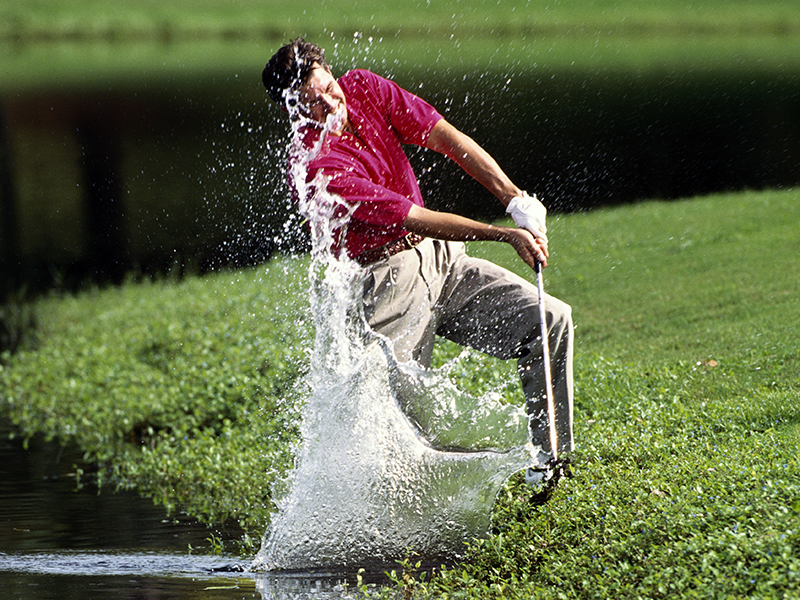
If you don't know your strengths and weaknesses, you might end up wasting practice time
Misdiagnosing what you are good and bad at on the course is a common trap golfers fall into, which results in players working on the wrong things. A lack of awareness can also cause you to take on shots on the golf course which might not be well-advised or suited to your strengths and ability level.
Taking a little bit of time to look at your game in detail, and being honest with yourself, will help you develop a more efficient method of practising - like this 60-minutes short-game practice routine.
4. Boring practise
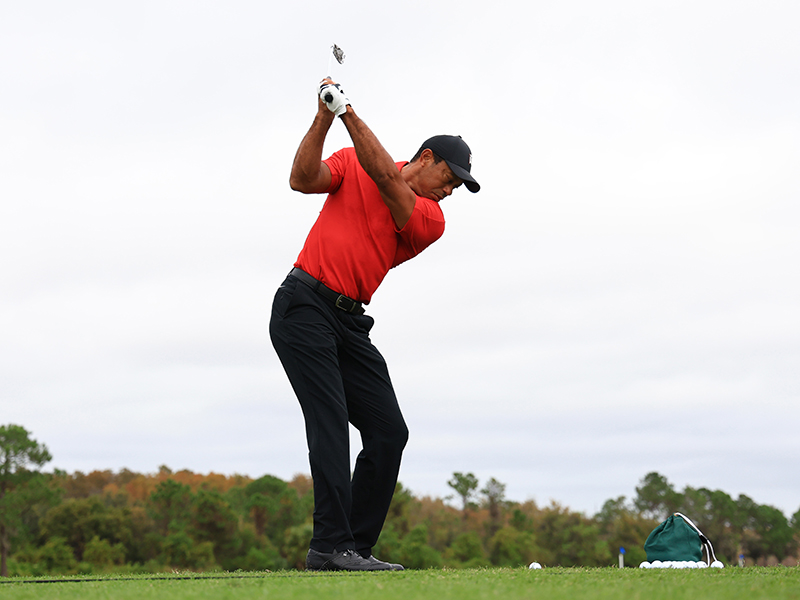
Why not spice up your practice by doing the nine-shot drill
You need to find a way of making practice exciting so it becomes something you've got an incentive to invest time into. Most amateurs practice monotonously, which is not conducive to improvement and rarely translates to the golf course.
Something Alex advocates is the nine-shot drill - one of the most popular drills on tour. It involves hitting a draw, fade and a straight shot hit with low, medium and high trajectories. Alternatively, for the mid to high handicapper, end a range session by picturing yourself playing holes at your club, preferably a par-4 and a par-5 so you have a variety of shots to play.
It could drastically improve your game to visualise the shots you want to play and attempt to hit them at the range on your next visit.
5. Goal setting
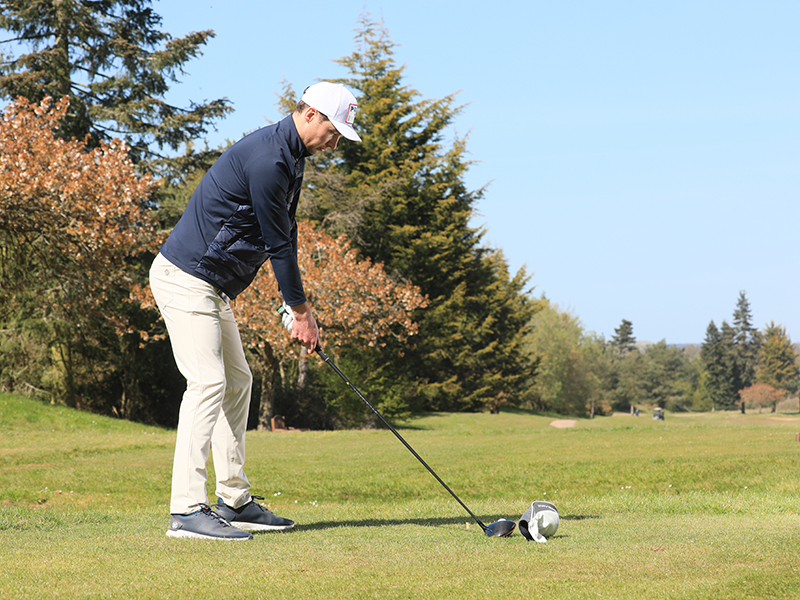
Set mini goals, like improving your fairway wood address position
Many players seek to make big leaps in their games which may not be realistic or achievable in the short term. For higher handicappers, it might even be worth considering why par doesn't matter and how it could be ruining your game.
A better way to create goals is to make them bite-size. The best players often speak of improving one aspect of their games in order to improve the whole. So if you set yourself a small target like improving your fairway wood address position, for example, you will give yourself a better chance of achieving the bigger goal of getting a lower handicap.
6. Practice games
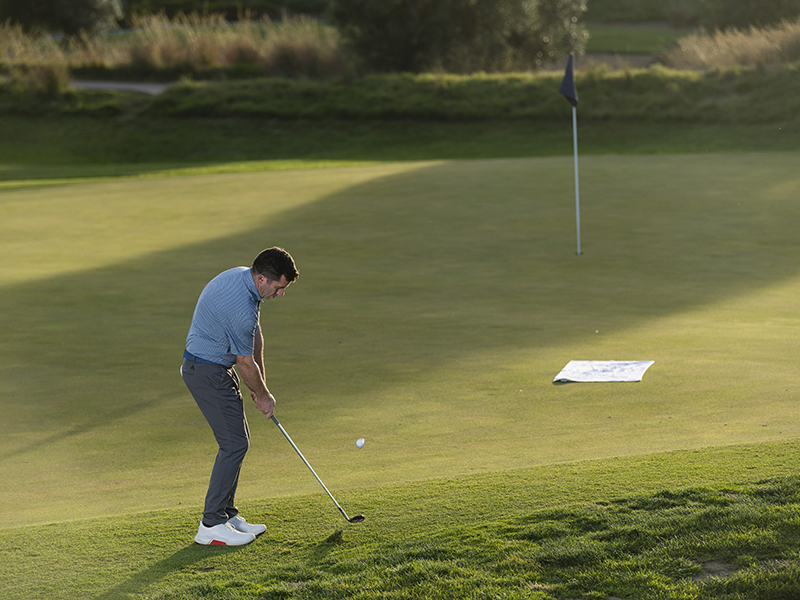
Playing a game while practising will help you get better quicker
It is no secret that we are more likely to continue to practice if we are having fun, and consistency will certainly help you to improve. Not a lot of golfers do this, but playing games or using new drills can really focus your attention on the area you want to get better at.
A good short-game one is the up-and-down challenge in which every 'hole' you play, the par is 2 - and you can apply this to pitching and chipping.
Next time you are having a short game practice session, put yourself in scenarios you might find yourself in on the course and test yourself by using the game above. You could also set yourself a target for each session, and track your progress over time.
7. Practising what you're bad at
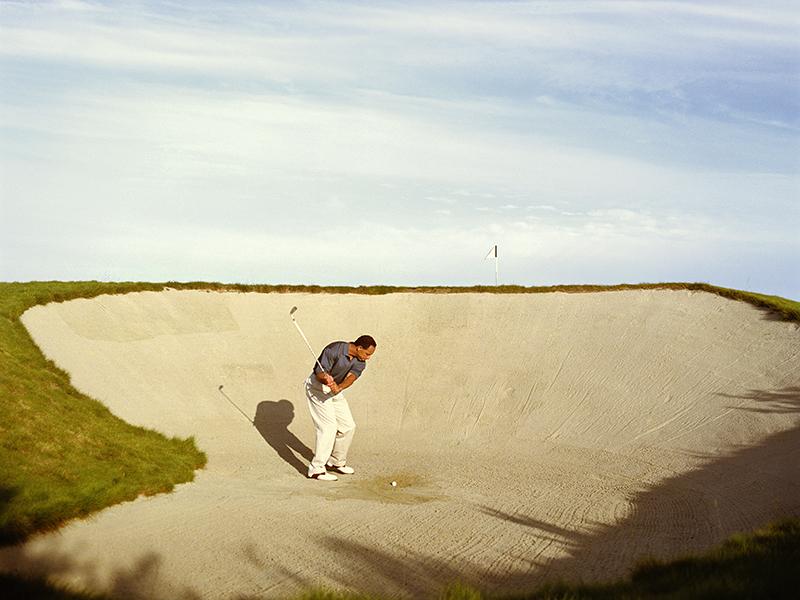
It's vital to work on the parts of the game you struggle with if you want to improve
We all have areas of our games that could use a little extra work, and we don't always enjoy dedicating the time to improve it, but embracing your flaws and being proactive in making progress is key to long-term improvement.
For example, at the range we stand and hit our drivers and irons over and over, but rarely do we go and work on improving our ability to get up-and-down from the bunker.
Alex's two tips for working on bunker play relate to the set-up and the feeling through the shot. At address, feel like the tailbone is a lot lower because this will lower the club and the hands and create a shallower club arc to the ball.
The second tip is to imagine a smiley face on your club and when you are playing the shot try and get it facing back at you. If it is not bunker play you need to work on, find other parts of your game that need attention.
8. Setting expectations too high

Putting too much pressure on yourself is only going to make you play worse
Let's face it, none of us are going to play like Rory McIlroy over night, so why do we put some much pressure on ourselves? Golf is supposed to be fun, but by setting unrealistic expectations around your improvement or your performance, you will find yourself not enjoying the sport very quickly.
Instead of worrying about your score from the outset, it's far better to focus on one shot at a time and learn to accept the consequences... good or bad. A tip on how to do that would be to focus on the shot you want to hit and then work on fully committing to it. If you do that then you've done all you can to give yourself the best chance of a positive outcome.
Remember, even the best players in the world mess up sometimes, so don't expect to go out and play perfect golf every time. Relax, enjoy and take the rough with the smooth.

Sam is Golf Monthly's Senior E-commerce Editor which mean's he oversees everything E-com related on the site.
This takes the form of creating and updating Buying Guides, reviews, and finding bargain prices for deals content.
Working with golf gear and equipment over the last seven years, Sam has quickly built outstanding knowledge and expertise on golf products ranging from drivers, to balls, to shoes.
He combines this knowledge with a passion for helping golfers get the best gear for them, and as such Sam manages a team of writers that look to deliver the most accurate, insightful, and informative reviews and buying advice. This is so the reader can find exactly what they are looking for, at a good price.
Additionally Sam oversees Golf Monthly voucher/coupon content which seeks to find you the best offers and promotions from well-known brands like Callaway, TaylorMade and many more.
Unfortunately, Sam is not a member of any club at the moment but regularly gets out on the golf course to keep up the facade of having a single-figure handicap.